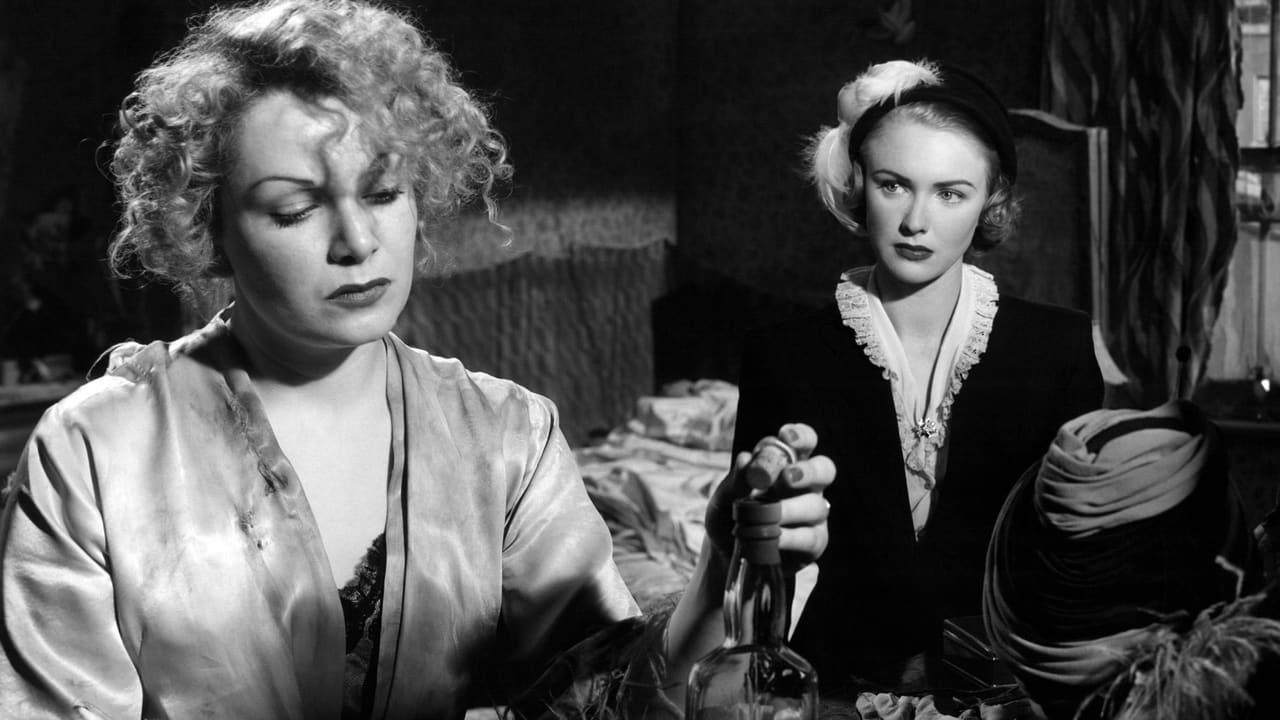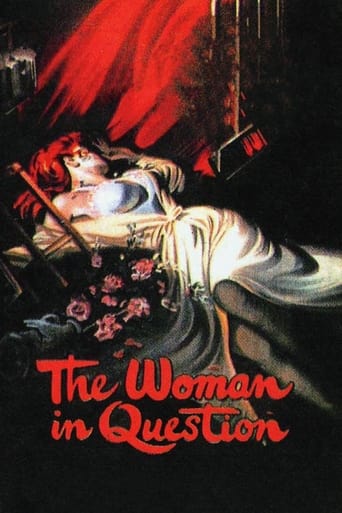

the audience applauded
... View MoreIt's a mild crowd pleaser for people who are exhausted by blockbusters.
... View MoreEach character in this movie — down to the smallest one — is an individual rather than a type, prone to spontaneous changes of mood and sometimes amusing outbursts of pettiness or ill humor.
... View MoreA clunky actioner with a handful of cool moments.
... View MoreInvestigating the brutal murder of a fun-fair fortune teller, a detective encounters five different witnesses' accounts of her character.This ingenious noir thriller provides an opportunity for Jean Kent to give the stand-out performance of her career as the murder victim who is seen though different eyes throughout the narrative. Every critic in the world has pointed out this obvious fact, but very few have zeroed in on Susan Shaw who gives a far more subtle but nonetheless equally telling interpretation of the victim's sister as her part in the drama is also recalled by the various witnesses.Also handing out an astonishingly well-rounded performance is Dirk Bogarde who cleverly overdoes the bogus American accent in order to tip the audience off to his real persona. He fooled me completely.All the actors are well-nigh perfect. The only player I have any problem with is Duncan Macrae in the key role of Superintendent Lodge. To my mind, Macrae lacks the charisma for this important part and I would have much preferred to see Duncan Lamont, a fine actor, who does wonders with his small and inconsequential role as a direction finder at the fun fair.Asquith has handled his players well, although I thought that a little more ingenuity in camera angles would have made the film even more noirishly appealing.
... View MoreAt first sight,"woman in question" seems to be a whodunit with a Georges Simenon flavor thrown in.The form seems intriguing,presenting twice some scenes,first from the witnesses' point of view,then from the main characters ' themselves.That's why we have five different portraits of the same woman.She 's so many women that we do not know if she is for example the nice little pet lover who falls for the birdman or the slut whom her sister depicts.Actually the trick is not new at all:see "citizen kane" ,which remains unsurpassed for that matter.And I could mention at least a dozen of movies which follows the same pattern.The crime and the flashbacks recall Marcel Carné's "le jour se lève" (1939).The plot is never really exciting and the final revelation downright disappointing,even if there's a good twist:the scene begins with one of the suspects the culprit and ends up with another one.Although at the top of the credits,Dirk Bogarde is only a supporting actor here.Another disappointment.
... View MoreA Woman in Question (recently IMDb lists it as Five Angels on Murder) is a Rashomon like story told in flashback. The story develops after a women is found dead and police detectives question witnesses, each of whom provides a different account of events leading to the murder. Until the very end, the ulterior motives of each of the characters remain unclear. It is a greatly underrated movie that is not easily accessible. Anthony Asquith handles the material really well and masterfully builds the suspense. In addition, solid performances are provided by the cast. If you get an opportunity to watch this movie, do not miss it. Hopefully the movie will become more accessible in the years to come.
... View MoreMade the same year - 1950 - as Rashomon which is acclaimed for retelling the same story several ways, The Woman in Question does the very same, allowing Jean Kent to portray five rather different versions of Astra, the fortune teller. The women in the film are much better drawn than the men, despite both the director and writer being themselves men, and despite the narrative framework of the all-male police team. Some would attribute this to Asquith's gay perspective. The combined portrait of Astra is not very flattering, especially her refusal to visit her dying husband, and in her using Pollard, the pet-shop keeper, to work for her for free, but then refusing his polite advances, she is walking a dangerous line. The underlying sadness of her person comes through, but she is not as sad as Pollard.The outstanding secondary character is Mrs Finch, the nosey neighbour from next door who never stops talking. Hermione Baddeley, in the part, practically steals the first part of the film to the extent that the rest almost seems like an anticlimax. Her characterization, her way of speech, the hairnet and the pinafore, owe a lot to the English tradition of comical working-class characters that goes back to renaissance theatre, was developed in the Music Hall, and is a precursor of the Monty-Python housewives chatting over the back fence. That is, it is very easy to see her as done by Dan Leno or Al Reid. A change of emphasis and we have a drag routine.
... View More